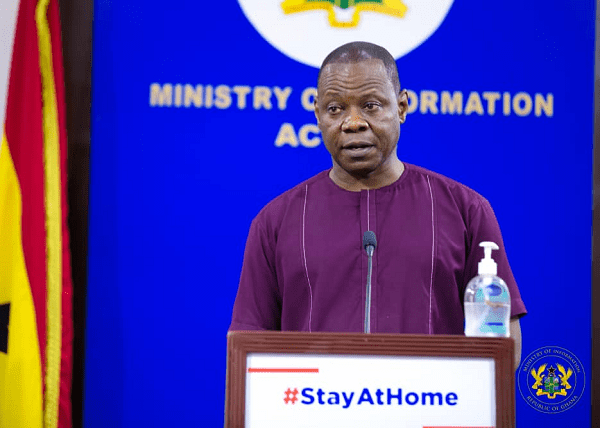
Take precautionary measures to prevent malaria — GHS
Ghanaians have been urged to take advantage of the malaria control interventions and services offered by the Ghana Health Service (GHS) to protect themselves from the disease, particularly in this era of the COVID-19 pandemic.
In a statement issued to mark the 2020 World Malaria Day, which fell on Saturday, April 25, the GHS said that in the midst of COVID-19, sight should not be lost on the burden of malaria both in the district and the region at large.
Advertisement
The GHS observed that in the wake of the COVID-19 pandemic, it was possible to lose sight of malaria disease and the gains made over the years and risk reversing hard won progress in the malaria fight.
Take action
The statement signed by the Director-General of the GHS, Dr Patrick Kuma-Aboagye, stressed that: “Now more than ever, it is important that we actualise the theme of this year’s World Malaria Day : ‘Zero Malaria Starts with Me,’ and take action to protect ourselves from malaria and COVID-19. Just like we ought to observe the COVID-19 precautionary measures, so must we take charge of our own health and practise the precautionary measures of malaria which are sleeping under an insecticide treated net, test to confirm malaria before you take any ACTs. Pregnant women should take all recommended doses of Sulfadoxine Pyrimethamine (SP) to keep themselves and unborn babies safe and to comply with malaria treatment as prescribed.”
It reiterated the importance in sustaining the effort made by the GHS and its partners to advance efforts made to prevent, detect and treat malaria.
According to the statement, malaria related deaths had reduced from 2,799 in 2012 to 333 by end of 2019.
“Since 2012, the proportion of OPD malaria cases tested by microscopy or Rapid Diagnostic Test (RDT) has steadily increased from 40 out of every 100 cases in 2012 to 96 out of 100 being tested in 2019. This implies that almost every suspected case seen at the health facility are tested to confirm, if it is malaria before treatment,” the statement said.
WAHO
In another press release to mark the day, the West African Health Organisation (WAHO) said the focus of the annual World Malaria Day is to keep malaria high on the political agenda, to mobilise additional resources, and to empower communities increasingly to take ownership of malaria prevention and care.
“This year, these have become, particularly, urgent in the light of the potential diversion of resources and attention to Covid-19 pandemic and the looming threat of reduced funding from the United States to the World Health Organisation (WHO) which will have a major deleterious impact on our region,” the organisation noted.
It said although the ECOWAS region recorded a reduction in malaria cases and deaths of 6.6 per cent and 36 per cent, respectively, between 2010 and 2018, the situation remained critical since the region accounted for half of the world’s malaria burden despite constituting only a tenth of the world’s population.
Sustain gains
The organisation, therefore, stressed the need to sustain and improve the recent achievements recorded in the ECOWAS region including improved case management, increased use of long-lasting insecticide-treated nets, and expanded uptake of seasonal malaria chemoprophylaxis.
It noted that Cabo Verde is on track to eliminate malaria by the year 2030 while Senegal and The Gambia are heading to pre-elimination with less than one case per 1000 population and expressed its gratitude to all partners that are funding malaria elimination programmes in the region, particularly the Global Fund, World Bank, Bill & Melinda Gates Foundation and many others.
“On the occasion of this year’s World Malaria Day, WAHO calls on all stakeholders – national governments, international partners and organisations, the private sector, civil society organisations, and communities – to redouble efforts to surmount the challenges that exist in this battle. These include human resource capacity, particularly, of laboratory personnel, low coverage of interventions, limited access to services, low community,” the statement concluded.



